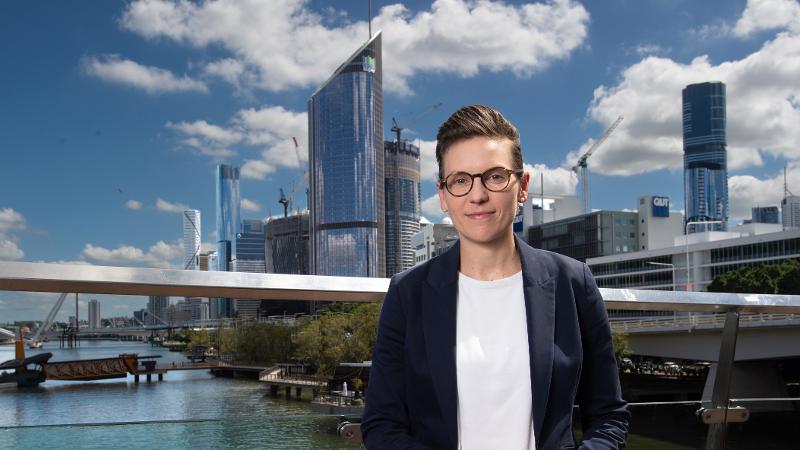
QUT and Brisbane have embarked on a golden decade of sports technology development, according to the university’s new Director of Sport, Olympian Emily Rosemond.
Ms Rosemond said the lead-up to the 2032 Brisbane Olympic and Paralympic Games would see a new generation of athletes coming through, with the backing of improved programs and facilities across Queensland in the private, government and tertiary sectors.
The new QUT Virtual Cycling Centre is just one example of new technology set to make a difference to the real and virtual worlds of sport, with other projects in the pipeline.
“Our strategic ambition is to position QUT as a leader in sport technology and inclusive culture, pursuing deeper engagement with sport as an industry,” Ms Rosemond said.
“Traditionally, university sport has operated outside of the broader sporting ecosystem across Australia.
“With a cohort upwards of 55,000 students, QUT has a great opportunity to develop a new model for university sport that leverages our teaching and research expertise, while providing opportunities for our students to co-create and participate in innovative programs and offerings that support and influence industry practice.”
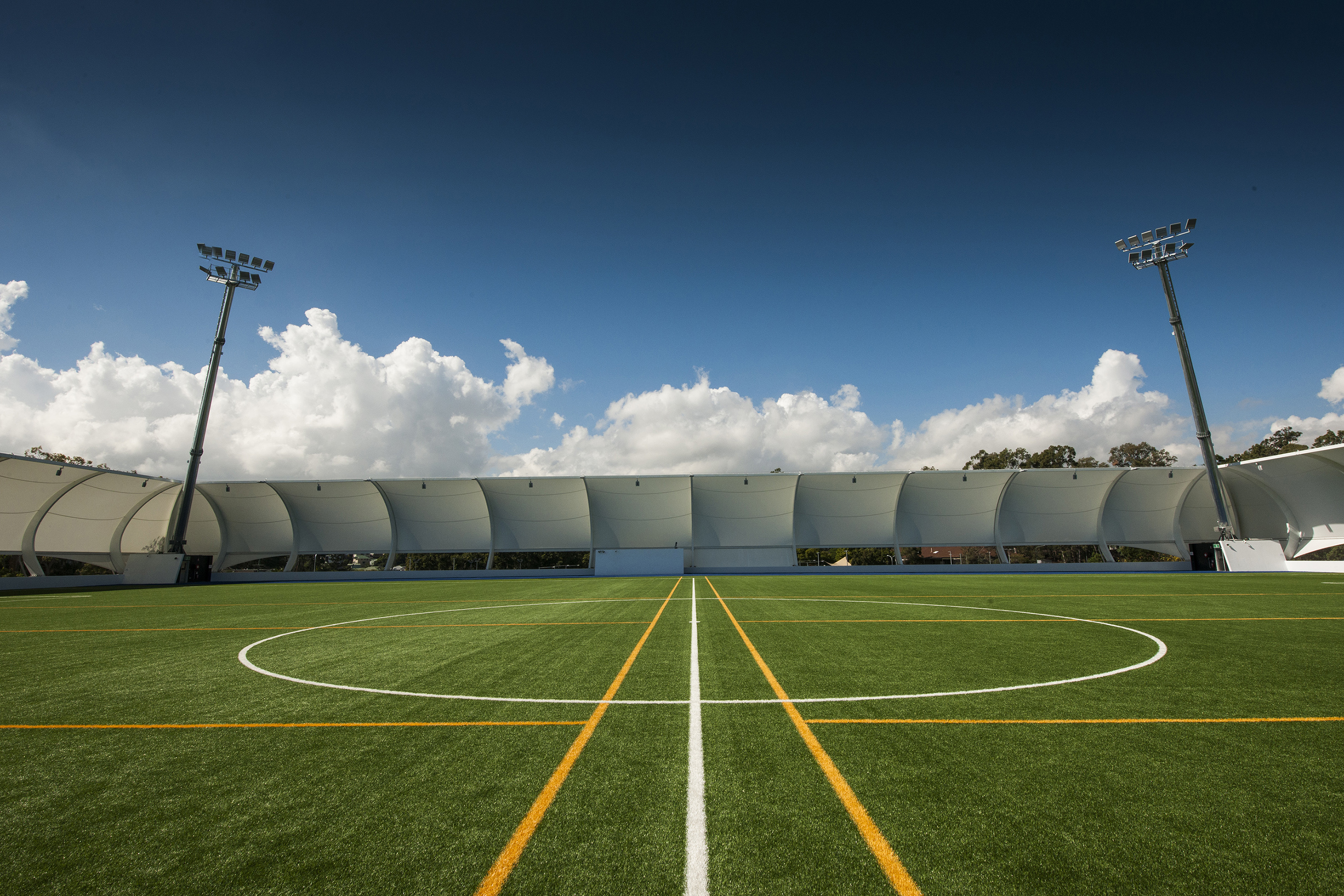
The university released its new QUT Sports Strategy last year, which Ms Rosemond said signified an increased commitment to sport.
“We’re focused on positioning QUT Sport as a firm nexus between teaching, research, and its application,” she said.
Ms Rosemond has been an integral part of QUT’s sports programs and events since 2018 and was made the university’s Director of Sport in December.
She knows firsthand what it’s like to compete at elite levels and represent her country – she is a former short track speed skater who represented Australia at the 2006 Winter Olympics before changing sports to track cycling.
She represented Australia in track cycling from 2008 to 2011, winning several world medals and a bronze in the women’s sprint in the 2008 Commonwealth Games.
At QUT, Ms Rosemond oversees sports initiatives ranging from the university’s Elite Athlete Program to an Australian-first university esport program, as well as social and recreational sport and high-tech facilities like the Virtual Cycling Centre.
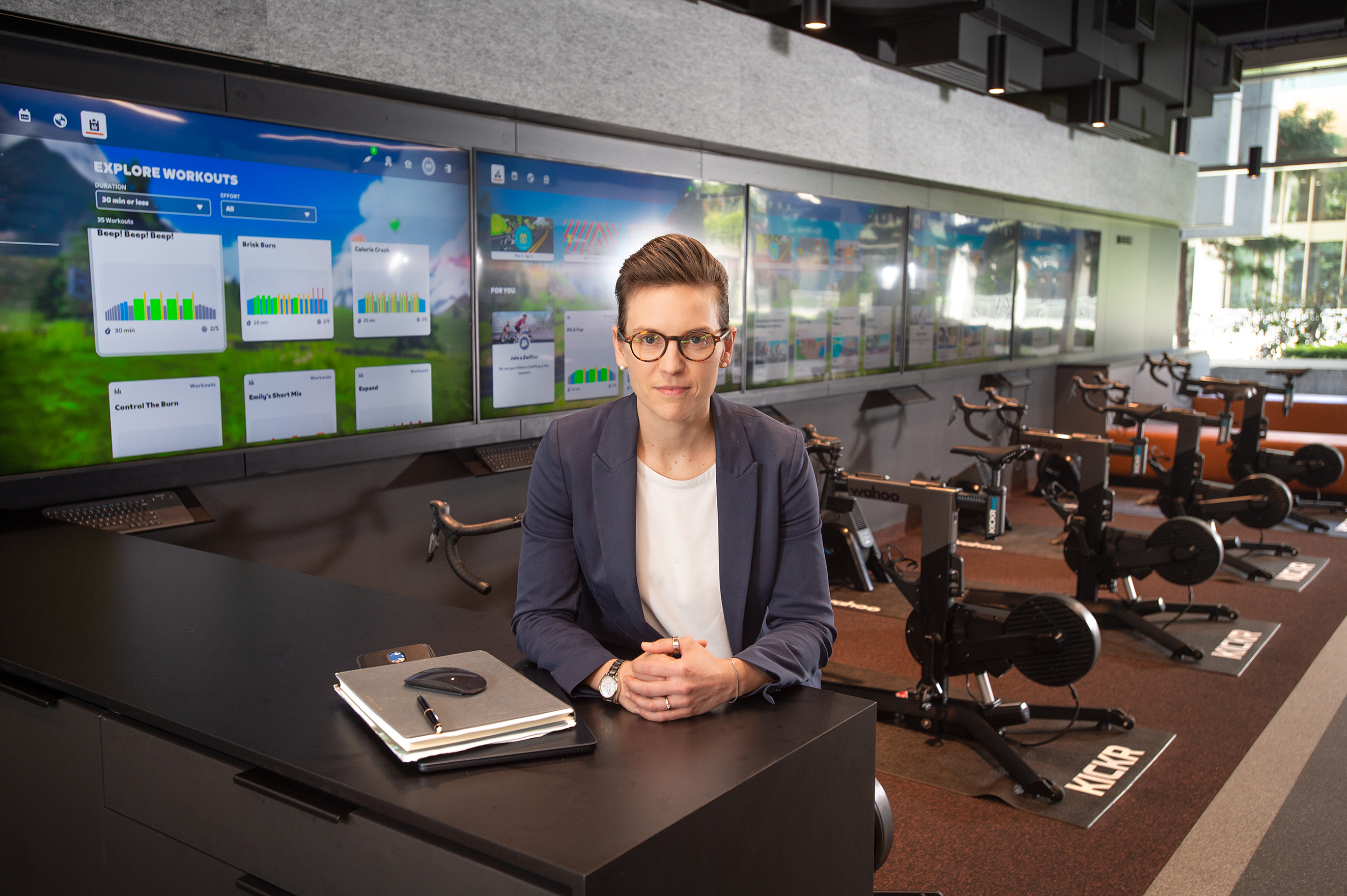
She said sports technology, and its applications in the real and virtual worlds, was one of several major areas where QUT would contribute over the next decade.
“We are likely to see many changes across Brisbane in the lead-up to 2032 and many advances in technology,” she said.
“We’re also witnessing a generational shift in terms of sporting interests. Esports is a great example of this. Our high school esports program attendance is growing rapidly, and our students are applying their knowledge learnt in IT, creative industries, health, education and business to delivering these programs for the community.
“Across our faculties, a broad range of disciplines and subject areas are being taught, preparing our students for the jobs of the future.”
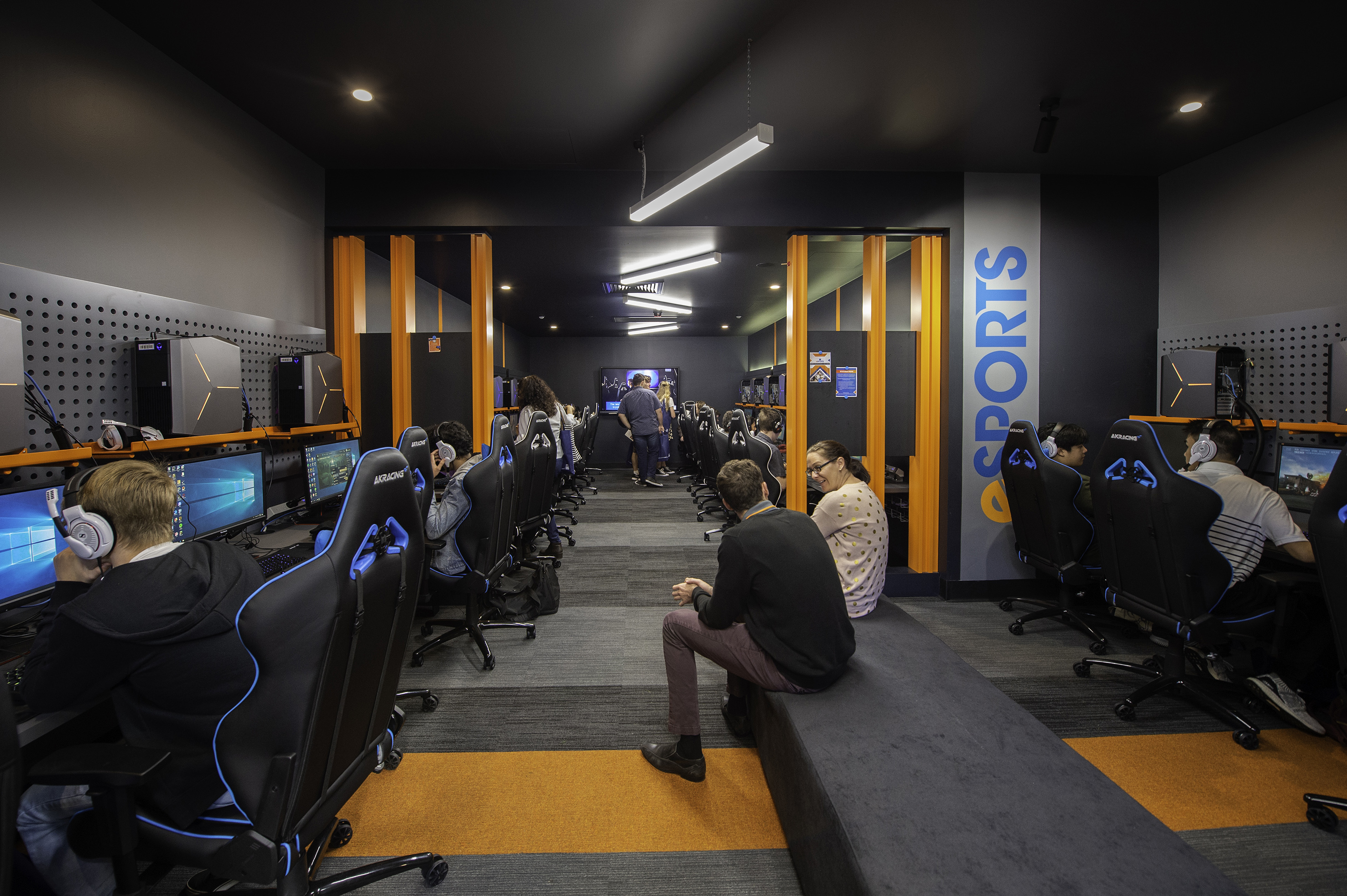
Ms Rosemond said the university also planned to invest in sports programs that would have outreach benefits for rural and remote communities, as well as students.
“We have a wholistic approach that places the student experience and the improvement of community health and wellbeing outcomes at its centre,” she said.
QUT’s central location in Brisbane is another key advantage.
“Our inner-city footprint lends itself to all types of activities which will occur in the lead up to and as a legacy of Brisbane 2032,” Ms Rosemond said.
“Without doubt, QUT’s proximity to the Gabba, Northshore and other inner-city areas with planned upgrades (including South Bank) puts us in a great position to maximise our strengths as a university of technology in partnership with industry.
“We are currently operating a social sporting program where more than 3000 students participate each semester, with plans to expand and align these programs with industry to ensure our students have opportunities to connect with state and national sporting organisations.
“Leveraging the fan engagement tactics of esports and drawing on our students’ expertise, we’re also working towards utilising our campus facilities as hubs to broadcast activities happening across our campuses and in the community.
“Our sports facilities at Gardens Point and Kelvin Grove campuses are equipped and available to host international teams and athletes looking to experience Brisbane and engage with sport at QUT.
“But, as technology continues to advance the way we play and interact with sport, I think we’ll see more teams and programs familiarising themselves with courses, places and environments utilising emerging AI and immersive technologies in their home locations.
“Our expertise in stem, data and exercise science lend themselves to this future-agenda for sport – the challenge is keeping up with the pace at which technology is changing.
“The collaboration that’s happening between our researchers, educators and the high-performance sporting industry in Australia is gaining strong momentum, and this will only continue in the lead up to and hopefully beyond 2032.”
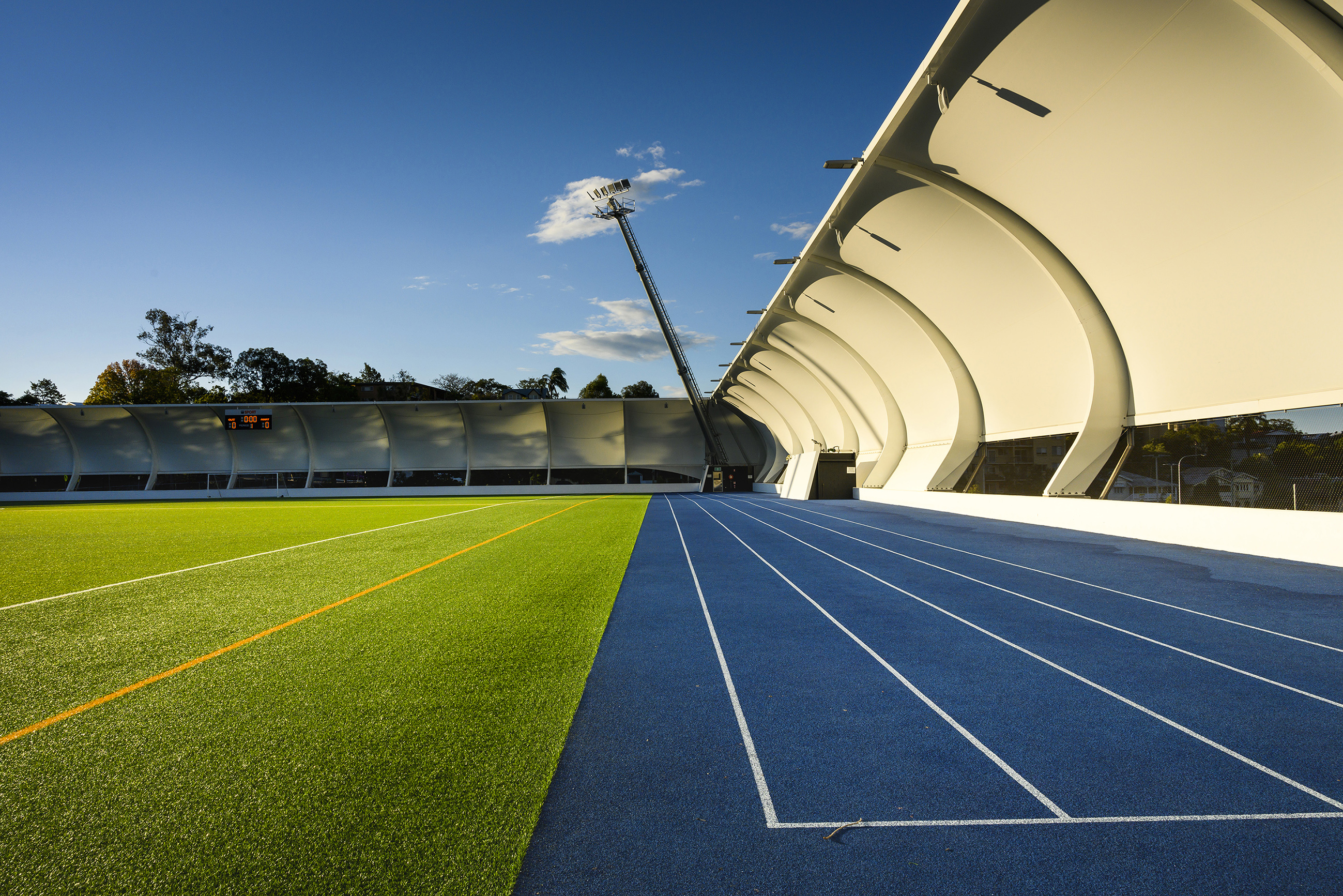
QUT’s sporting facilities across its Gardens Point (GP) and Kelvin Grove (KG) campuses include:
- Virtual Cycling Centre (GP) with 10 x Wahoo KickR bikes connected to Virtual Worlds (also a multifunctional space that can be adapted to other sports tech-focused activities)
- QUT Esports Arena (GP), a purpose built esports arena connected to a broadcasting, streaming and mixing studio
- Kelvin Grove Sports Field, a FIFA-accredited football field and multiple outdoor courts and 80m running track … all built three stories up on top of a QUT multi-level carpark
- Indoor Sports Centre (KG), an international standard sprungfloor indoor court for ball and racquet sports programs
- Gardens Point Aquatic Centre, featuring a 50-metre FINA-accredited indoor pool
- Fitness and Aquatic Centre (KG), including a 25-metre heated pool and gym.
The QUT Elite Athlete Program also continues to go from strength to strength, with notable alumni including swimmers Cate Campbell, Jack McLoughlin and Rachael Watson, triple jumper and long jumper Henry Frayne, and cyclist Jessica Pratt.
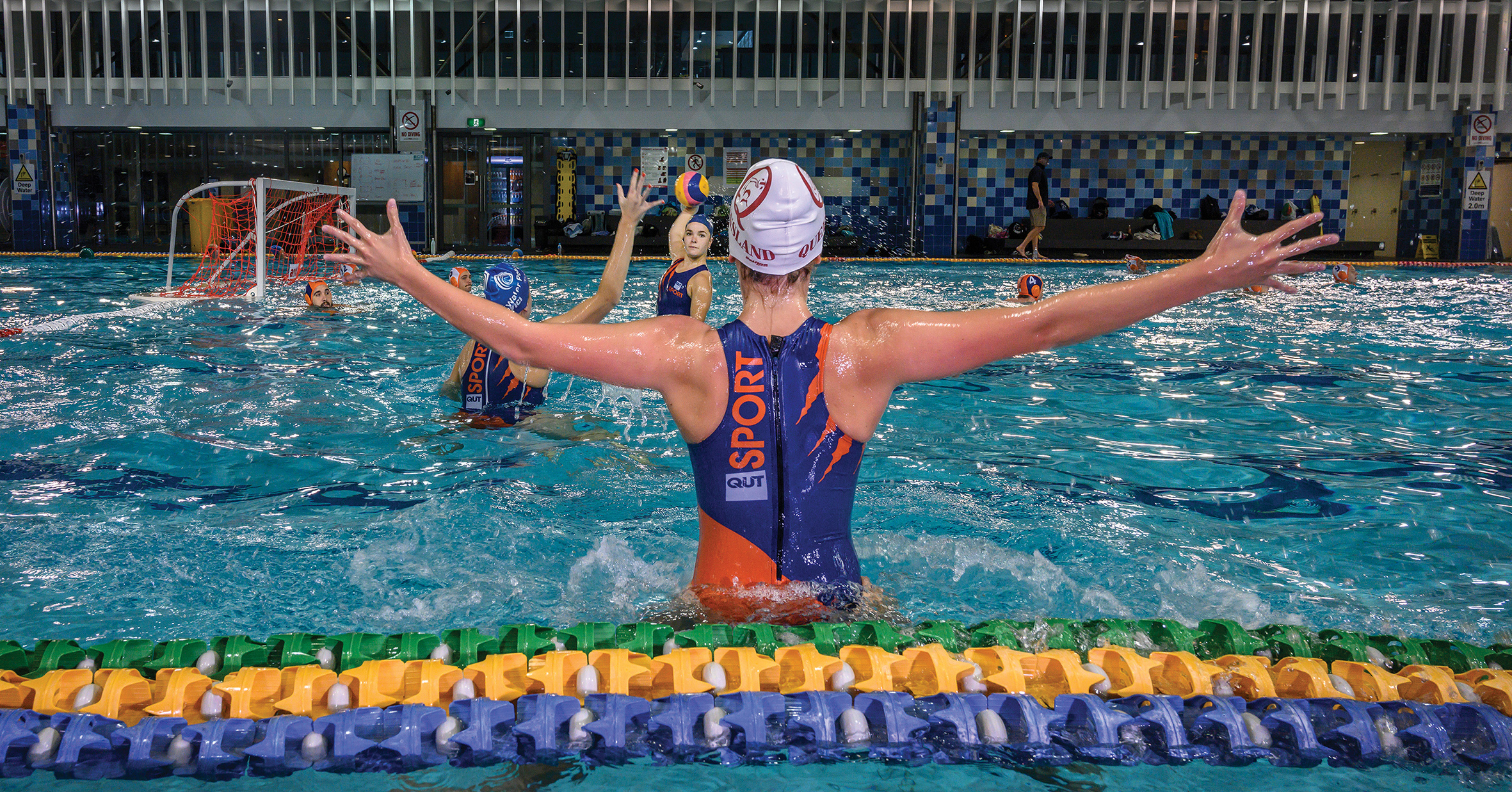
“We’ve also partnered with the Australian Institute of Sport (AIS) to offer scholarships and support that aligns to the National ‘Win-Well’ strategy,” Ms Rosemond said.
“This has been an important step and a commitment to ensure our student-athletes receive wholistic support that considers the demands of competing whilst pursuing education.
“Student-athletes are undoubtedly very disciplined individuals who are striving to achieve in both academics and sport, so ensuring they are thriving at QUT is our mission.”
“In 2022, the AIS awarded QUT with research grants, one of which has included a dedicated wellbeing project, focused on unpacking, and assessing the student-athlete journey. It’s a good example of how our research, engagement and support model can work together to ensure industry-leading outcomes.”
QUT Media contacts:
- Mechelle McMahon, media@qut.edu.au
- After hours, 0407 585 901 or media@qut.edu.au


